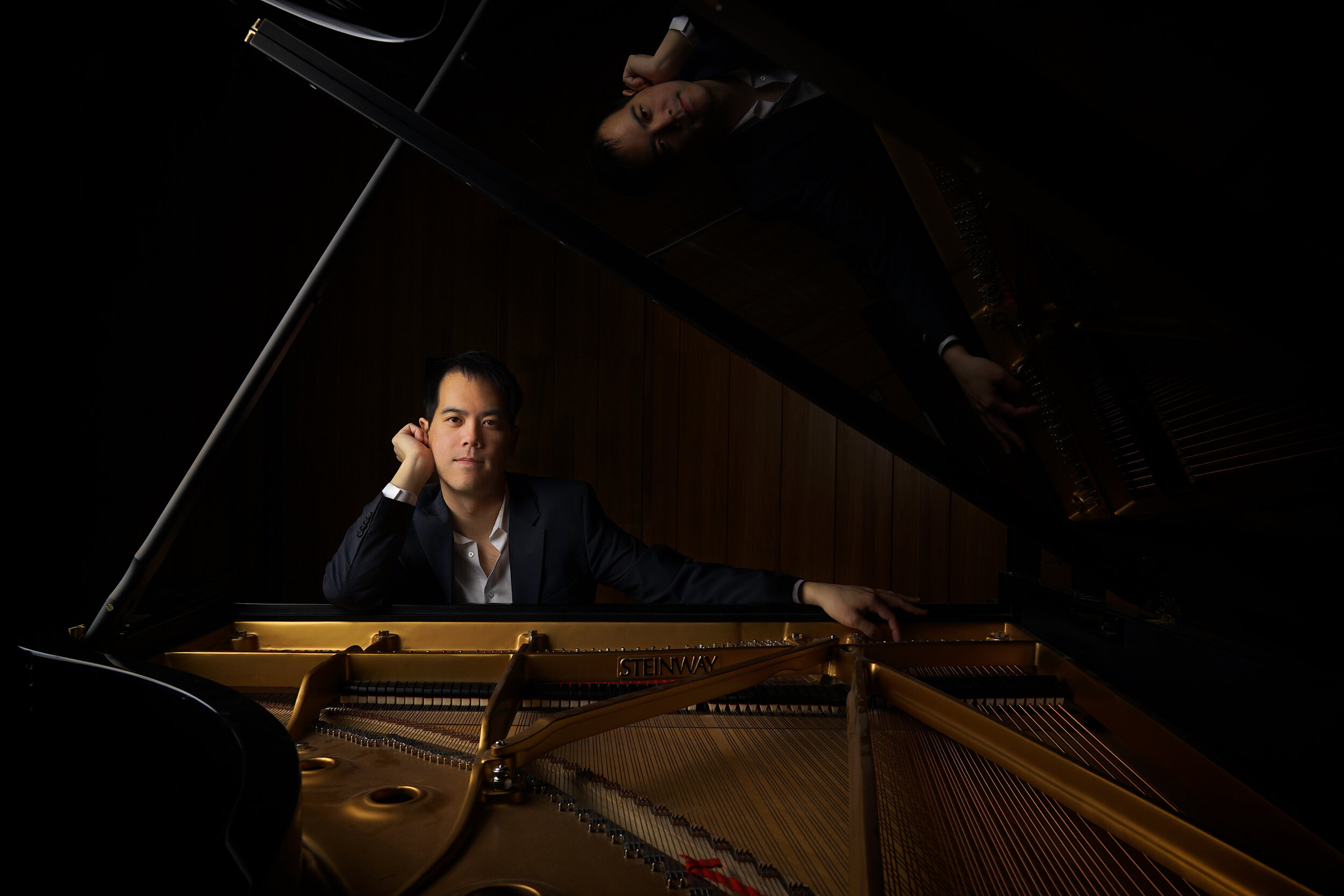We Can Find Compassion at Conservatory Without Compromising Excellence
Photo Credit: Baher Khairy
April, 2020: It’s a few weeks into quarantine, and the music students are getting restless. While most other college programs continued virtually after the sweeping March shutdown, conservatories cut their semesters short and canceled all remaining rehearsals and performances, citing the infeasibility of conducting them online. I felt as though I had been unceremoniously plucked from my life of rehearsing string quartets and memorizing concertos and thrust into a vacuum. Mere weeks from the end of my graduate degree, my already-uncertain future was now on indefinite hold, and it seemed like my life in music would never look the way I expected.
It had been a long time in the making, but the cultural upset of the Covid-19 pandemic combined with substantial momentum in the Black Lives Matter movement launched the beginnings of a reckoning in the classical music world. During a year in which many organizations expected to sit back, relax, and financially exploit Beethoven’s 250th birthday, they instead had to meet the demands for a classical music ecosystem that is more inclusive, accessible, and equitable. Progressive institutions started to mobilize to amplify more minority voices, and entrenched institutions were given an excuse to expand in a progressive direction without completely alienating their traditionalist base.
SPEAKING OUT ON SOCIAL MEDIA
With extra free time and difficult subjects now the topic of everyday conversation, conservatory-age musicians started using social media to speak up about taboo subjects and air their grievances. Instagram accounts started popping up over the summer: @operaisracist first posted on June 2nd and now has over 13,000 followers, @orchestraisracist first posted on June 5th and now has over 11,000 followers, and @musicschoolstories first posted on July 6th and is creeping up on 2,000 followers. The increased freedom of dialogue released the floodgates to all the unsavory experiences of a formal music education, including the toxic teaching practices of many professors and the toxic culture of music school.
Music schools and conservatory programs may differ widely, but they all have one thing in common: that singular teacher-student relationship which is a phenomenon unique to the classical community. University administrators may try to streamline curriculum and expand student activities, but most music students consider little else besides the professor and the scholarship package. With your studio teacher in control of your education and playing an enormous role in your future career, the line between guided support and insidious mistreatment can be a thin one. “Let’s talk about power dynamics between professors and students and how that’s abused in music schools,” reads the description for @musicschoolstories, and the anonymity of the submission process has people lining up to do just that.
MEMORIES OF MUSIC SCHOOL
In the first few weeks of quarantine, a trend of creating satirical bingo boards for one’s school or fellowship program made the rounds among the bored music students on social media. I decided to join in on the fun and made one for my alma mater, the Eastman School of Music. I alluded to quirks of the community that only alums would understand, such as the often twice-daily pilgrimage to Java's, the grueling trek to the ninth floor of the practice annex, and the tradition of taking post-concert group pictures on the photogenic marble staircase in Lowry Hall. I also included "crippling self-doubt" and "getting yelled at by someone else’s teacher." These were not out of place among the other anecdotes, because these were shared experiences too, and ones that somehow we all laugh at together.
Two music degrees later, it's a whimsical memory; the pain and suffering, the mental breakdowns and panic attacks, the fear of insufficiency and the anxiety of imposter syndrome, it was truly par for the course. One of the strongest (and oddly, fondest) memories of my undergrad is a trip to Wegmans after studio class with two of my girlfriends in which we ended up pulled over by the side of the road, sobbing and commiserating together about how difficult our lessons were and how terrified we were for the next one. I tell this story all the time as a way of expressing that the stress I endured wasn't so bad in the end, and it got me to the level of playing that I'm proud of today.
EXAMINING THE PROBLEM
In many respects I was not suffering much hardship. The teacher in question was not a misanthrope or a creep but an unrelenting taskmaster who loved us like a mother (and kept us in constant fear of her disappointment). But I did spend a summer studying with a teacher who belittled my musical ideas, would not allow me to play in studio class, and flatly told me I would not be accepted to a good music school. I had a trial lesson with a teacher who spent an hour criticizing my setup with no constructive suggestions (before informing me he never had space in his studio to begin with). The real hardship is that conservatory culture makes this normal and clouds our judgment of unacceptable behavior so we cannot believe evidence of prejudice and predation. The real hardship is that when our peers speak up about their suffering, many of us still have this knee-jerk response: “it’s only how they push us to be better, and if it's too difficult then you need to toughen up."
I am a good violinist, and deep down I believe that I would not be half as good as I am today without having powered through years of emotional beatings at the hands of teachers, coaches, mentors, and conductors. It’s both the privilege and the Stockholm Syndrome talking, because I made it out relatively unscathed; all I really ended up with was fatigue and a misapplied work ethic. Sometimes the only thing making me drag myself back to the practice room at 10 P.M. was the fear of being privately humiliated in my lesson the next day (or worse, publicly humiliated in studio class), and if by the end of the practice session I could finally play that passage in tune, it didn’t really matter how I got there, or so I believed.
Credit: Wilson Butler
PASSING THE TORCH
Now that I have my own students, I tell parents all the time that punitive measures are never helpful, that music is a place for joy and creativity and it's always best to meet the student where they are and focus on improvement. I want my students to take music seriously and I would be thrilled if one of them ended up choosing the conservatory path. But in all of our heads as both music educators and those who have received a music education, there is a switch that exists somewhere between the child who takes music lessons for enrichment and the child who takes music lessons for a career. It happened for all of us at some point; I had one when I was ten years old and quit my other extracurriculars to focus on violin, and another when I was fourteen years old and someone told me for the first time that I ought to consider music school. At every juncture there was an escalation of both expectations and well-intentioned punishment on the part of my teachers: I was now trying to achieve excellence, or at least be excellent enough to get paid to do what I do, so now I had to be whipped into shape. I had previously been allowed to choose my own repertoire according to my interests, but now I had to bone up on the standards. I had previously engaged in all kinds of musical activities—sang in choruses, played popular styles like fiddle and jazz, improvised, learned other instruments—but now I had to narrow my focus. I didn’t begin to feel constrained by this approach until nearly a decade later, when I finally started to explore repertoire that interested me, only to be told that these pieces “wouldn’t work well for an audition” and “wouldn’t teach me anything.”
The classical music world has rightfully been criticized for engaging in hero-worship, but the cult of the genius is inextricably tied to the cult of the brutal mentor who beats them to hell and back in the pursuit of greatness. We all want to be that genius because our teachers give us old recordings of Heifetz and Cliburn rather than sending us to live concerts to hear our local musicians, so we all go seeking that brutal mentor before we have any understanding of what it will do to our emotional well-being, our mental health, and our ultimate longevity in the field.
MOVING FORWARD
How do we define unethical treatment in an art form built on suffering for perfection? Is there a way to strike a balance between supporting our peers who have been traumatized and being grateful that the “tough love” approach worked for us? Not when it’s the same toxic mindset that makes it difficult for our colleagues to speak out about the more targeted injustices, the racism and the sexual harassment, because while they were being mistreated we felt we were doing a better job of “handling the pressure.” Not when it creates a culture in which administrators benefit from appeasing the faculty by allowing their students to be abused. Not when it damages our ability to feel empathy because we are so subconsciously focused on self-preservation. Structuring a musical education like an obstacle course does nothing to develop the creativity and innovation skills necessary for a realistic, successful career in music.
Our task is to reconcile the mentality of "what doesn't kill you makes you stronger" with "maybe they shouldn't be trying to kill us." Classical music is difficult, and I want it to stay that way. I don't want to listen to concertos played poorly or sit next to orchestral musicians who can't keep time. But meritocratic gatekeeping is a slippery slope to other varieties of exclusion, and some of the more severe elitists in our field do not need another reason to keep people out. We are truly misled if we think that cruelty is the only way to motivate people to achieve greatness.
We need intensity and dedication in our art form, but when it comes to nurturing a mind, negative pressure can weigh heavily and have unintended consequences. Leaders in the field are focused on retaining our audiences, but take for granted that our highest-trained workers will want to stick around too. We cannot afford to estrange our most creative thinkers, and we certainly cannot afford to keep proving the perception that classical music is a forbidding, austere, inflexible, discriminatory industry. This restrictive way of treating our most impressionable is a symptom of a much larger problem: the obsession with yet-unattained perfection and the denigration of any other pursuit, for no other reason than “it’s the way it’s always been done.” We cannot let this be an excuse anymore, especially when diverse and compelling projects are suppressed in favor of reattempts at what we consider the great monoliths of the art form. We need to find a way to reexamine our ingrained perceptions about how we learn, and use those highly-trained ears of ours to listen to our colleagues.












